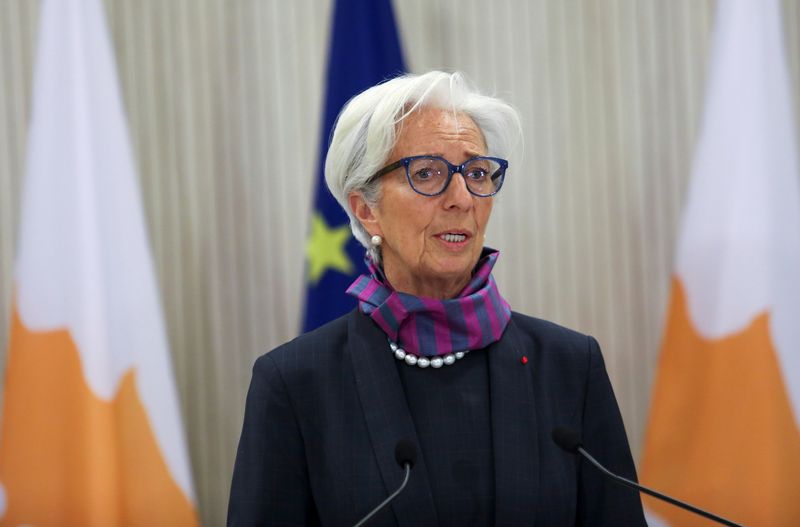FRANKFURT (Reuters) -The European Central Bank’s interest rate increases are just starting to take effect on the economy but their effect may become stronger as a result of banking turmoil, ECB President Christine Lagarde said on Wednesday.
Investors are pondering whether the ECB will be able to continue raising rates to fight high inflation despite turmoil in the banking sector that has seen two U.S. lenders go under and Swiss giant Credit Suisse need a last-minute rescue.
Lagarde said the ECB’s actions to raise borrowing costs may be magnified if banks become more risk averse and start demanding higher rates when lending – likely implying the central bank would need to increase its own rates by less.
“If, for example, banks start to apply a larger ‘intermediation wedge’ – meaning that at any level of the base rate they demand a higher compensation for the perceived risk they are taking on when lending – then pass-through will become stronger,” Lagarde said.
She reaffirmed the ECB’s determination to bring inflation in the euro zone to 2%, from 8.5% last month, and noted past hikes were only just starting to be passed onto the economy.
“For inflationary pressures to ease, it is important that our monetary policy works robustly in the restrictive direction,” she said. “And that process is only starting to take effect now.”
The ECB has increased the rate it pays on bank deposits by a record-breaking 350 basis points to 3% since July and financial markets expect a further increase to 3.5% later this year.
The central bank for the 20 countries that share the euro last raised rates last week but it removed from its policy message an expectation that it would increase rates again at upcoming meetings in light of the recent financial jitters.
Euro zone inflation has already started falling after hitting a peak at 10.6% last October but prices excluding energy are still growing a steady pace.
Speaking after Lagarde at the same event, the ECB’s chief economist Philip Lane said he expected core prices to ease too over time as lower fuel costs filter through to other sectors.
“There are reasons to believe, by looking at the indirect effect of energy on core, by looking at the pipeline (pressures), that there are data points to suggest that underlying inflation measures will ease over time,” Lane said.
He cautioned, however, that this expectation was predicated on growth in wages peaking this year.
(Reporting By Francesco Canepa and Balazs Koranyi; Editing by Toby Chopra and Christina Fincher)


